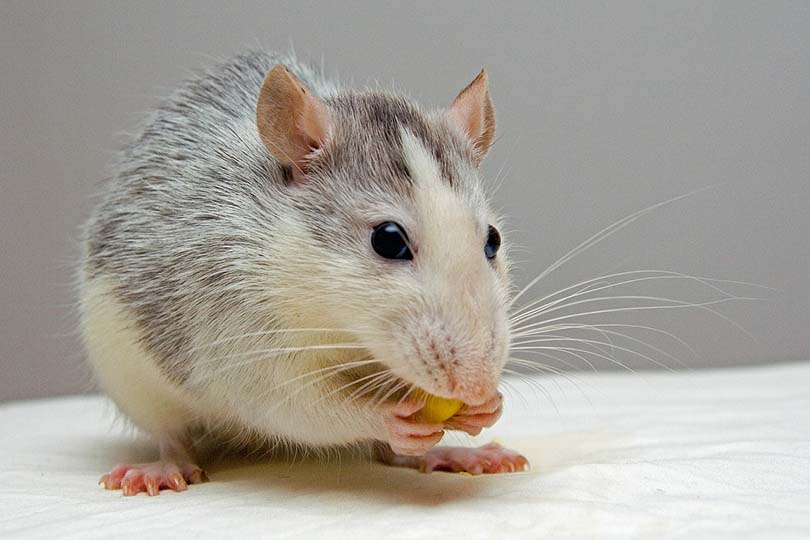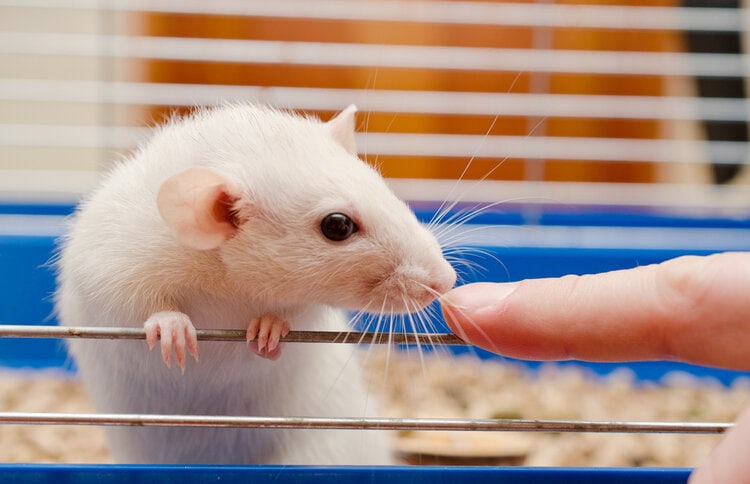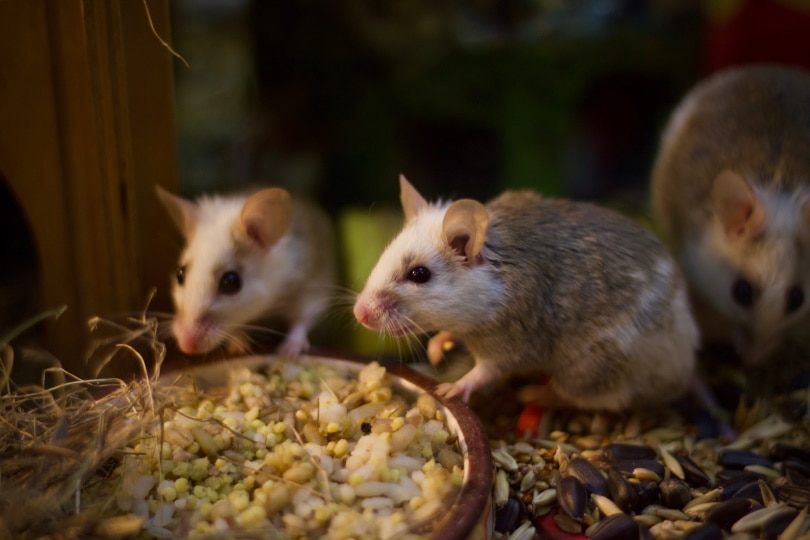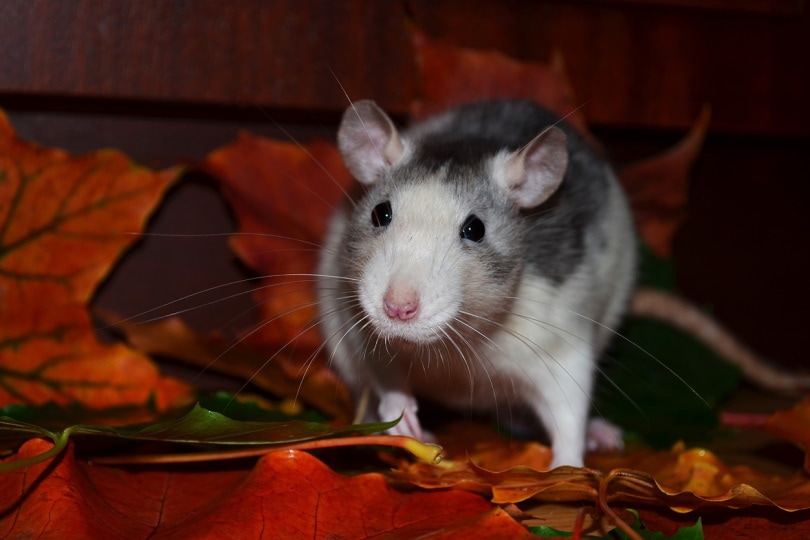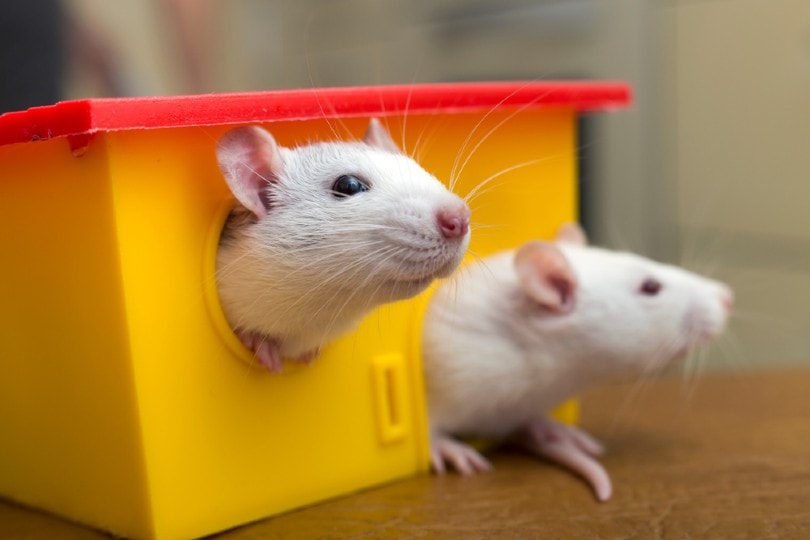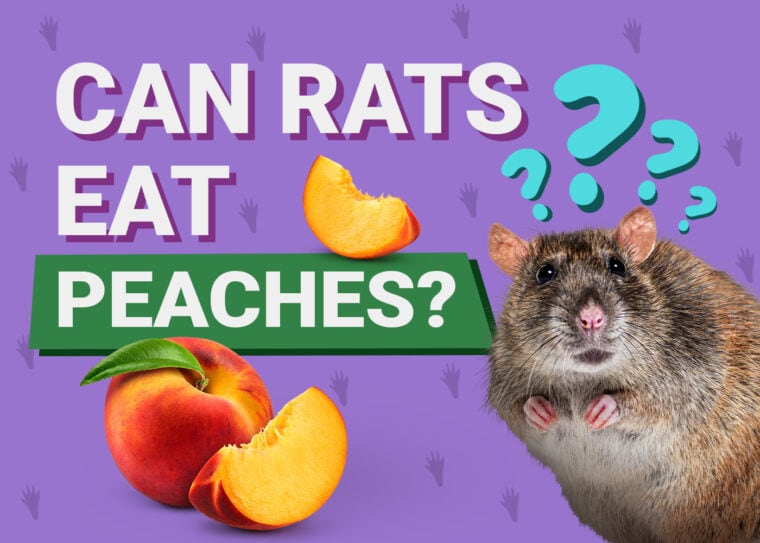
Fruits and vegetables are a healthy addition to most diets, whether for humans or some of our furry companions. Pet rats are omnivores and enjoy a variety of different foods, including sweet treats like fruits.
Peaches are delicious, easily accessible, and provide a variety of nutrients, but can rats eat peaches? Like most other fruits, rats can have peaches, but there are some precautions you need to take before adding them to their diet.
What’s an Ideal Rat Diet?
Often depicted as pests and disease-ridden vermin, wild rats are opportunistic and eat whatever they can find, including human food, pet food, and garbage. However, just because a rat will eat whatever it can doesn’t mean it should.
Given options, rats prefer to eat fruits, vegetables, and seeds. Rats can eat small portions of meat or insects for protein. You can prepare a balanced, homemade diet of fresh fruits and vegetables with rat pellets or a rat cube. Some of the best fruits and vegetables for rats include:
Rats can also have these nutritious foods, but only when cooked thoroughly:
If you want to give your rat a treat for training, you can offer seeds, small pieces of bread, mealworms, cereal, and cooked pasta, rice, or grains.

Nutritional Value of Peaches for Rats
Peaches are delicious fruits that grow on deciduous trees. First cultivated in China in 6,000 BC, peaches are now commonly found all over the world and are one of the easiest fruits to obtain.
Fresh peaches have excellent nutritional profiles. They’re a low-calorie, good source of simple and complex carbohydrates and small amounts of protein and fat. In addition to essential vitamins A, C, E, K, and the B-complex vitamins, magnesium, phosphorus, zinc, iron, potassium, and calcium, peaches have high concentrations of lutein and zeaxanthin for vision health.
Potential Hazards of Feeding Peaches to Rats
While the compounds in a peach are perfectly safe for your pet rat, the pit can be dangerous. Pits are difficult for rats to open, even with their powerful jaws and teeth, but they can chip or break teeth trying.
If they do reach the inner layer, the possible harm is even greater. Peach pits, like other fruit pits, contain traces of cyanide, a highly toxic chemical. In the right concentration, cyanide is a rapidly acting poison that’s highly lethal to humans when ingested, inhaled, or absorbed through the skin. In the small body of a rat, this poison is more likely to be fatal.
Though it’s unlikely that your rat can access the inner layer of the pit, always remove the pit entirely and eliminate the risk before feeding it to your pet. At the least, you’ll protect your pet’s teeth from damage, and at most, you’ll prevent serious accidental poisoning.
Also, avoid giving your rat canned peaches as they will usually have a much higher sugar content than fresh peaches.

Other Considerations for Feeding Peaches to Rats
Once the pit is removed, the peach is completely safe for your rat to enjoy in moderation. That said, fruits and vegetables should only comprise 10% or 20% of a rat’s diet. If you want to add peaches—or any other fruit or vegetable—it’s best to introduce them gradually to ensure your rat tolerates them well and enjoys them. If all goes well, you can slowly increase the amount.
If your pet rat has any health conditions or special dietary needs, be sure to speak to your veterinarian before introducing peaches or other new foods into its diet.
What Foods Should Your Pet Rat Never Have?
Some foods are poisonous to pet rats and shouldn’t be fed under any circumstances.
If you’re not sure about a particular food, it’s best to err on the side of caution and reach out to a vet specialist. You have plenty of options for foods that are healthy and enjoyable for your rat, so there’s no reason to take a chance on a potentially harmful food. Domesticated rats have short lifespans, typically about 4–5 years. While that seems short, it’s a lifetime compared to the average lifespan of a wild rat. If they’re lucky, a wild rat can live around 1–2 years, though it’s often less. This disparity is due, in part, to the protection, care, shelter, and nutrition provided by their loving owners. Do the best for your pet by providing a balanced, species-appropriate diet with plenty of variety for optimal health and longevity. Related Reads: Conclusion


